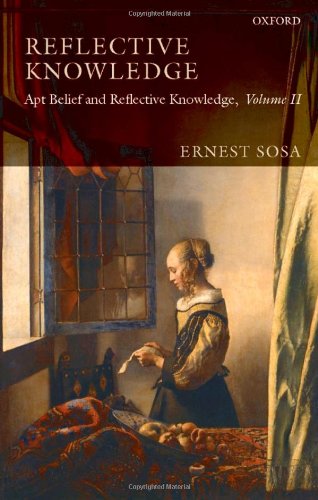آیا کتاب را خواندهاید؟
میخواهم بخوانم
در حال خواندن
خواندم
آیا کتاب را دوست داشتید؟
دوست داشتم
دوست نداشتم
Reflective Knowledge: Apt Belief and Reflective Knowledge, Volume II
امتیاز محصول:
(هنوز کسی امتیاز نداده است)
دسته بندی:
Philosophy
ویژگیهای محصول:
کد کالا:
145618
شابک:
9780199217250
نویسنده:
انتشارات:
موضوع:
Philosophy
سال انتشار:
2009
جلد:
Hardcover
تعداد صفحه:
240
طول:
21.59
عرض:
14.1986
ارتفاع:
2.3876
وزن:
480 گرم
قیمت محصول:
600,000 ریال
موجود نیست
درباره Reflective Knowledge: Apt Belief and Reflective Knowledge, Volume II:
Reflective Knowledge argues for a reflective virtue epistemology based on a kind of virtuous circularity that may be found explicitly or just below the surface in the epistemological writings of Descartes, Moore, and now Davidson, who on Sosa's reading also relies crucially on an assumption of virtuous circularity. Along the way various lines of objection are explored.In Part I Sosa considers historical alternatives to the view developed in Part II. He begins with G.E. Moore's legendary proof, and the epistemology that lies behind it. That leads to classical foundationalism, a more general position encompassing the indirect realism advocated by Moore. Next he turns to the quietist naturalism found in David Hume, Ludwig Wittgenstein, and P.F. Strawson. After that comes Thomas Reid's commonsense alternative. A quite different option is the subtle and complex epistemology developed by Wilfrid Sellars over the course of a long career. Finally, Part I concludes with a study of Donald Davidson's distinctive form of epistemology naturalized (as Sosa argues).
The second part of the book presents an alternative beyond the historical positions of Part I, one that defends a virtue epistemology combined with epistemic circularity. This alternative retains elements of the earlier approaches, while discarding what was found wanting in them.





